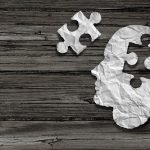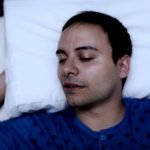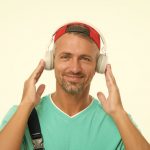First Artificial Adrenal Gland Development is Underway
Node Smith, ND
Researchers Hope to Provide Solution to Adrenal Gland Disorders
A group of researchers have managed to take the first step in developing an artificial adrenal gland, using cells from urine.1
The study comes from Cell Reports, and the research is being done at Queen Mary University of London. The overarching hope is to provide a reliable solution to adrenal gland disorders – such as adrenal insufficiency.
Adrenal Gland Dysfunction Hosts an Array of Symptoms
The adrenal glands are responsible for producing hormones that regulate our stress response, sodium balance, blood pressure and blood sugar, as well as sex hormones. Dysfunction of the adrenal gland can have wide spread and often confusing symptoms such as fatigue or over-excitability, insomnia, hypertension, skin changes, blood sugar abnormalities, and hormonal imbalances.
Too Much, Too Little, or Not at All
Adrenal gland disorders are the result of the gland either producing too much or too little of these hormones – aldosterone, cortisol, DHEA, testosterone, and epinephrine/norepinephrine. These affect growth and development as well as metabolism.
Research is Still in its Juvenile Stage
The research is in its infantile stages, with the generation of the first steroid-producing cells – human inducible steroidogenic cells, (hiSCs). The hiSCs have been generated using skin, blood and urine from healthy donors as well as patients with congenital adrenal disorders – this is a “reprogramming” process.
Adrenal Dysfunction Currently Being Modeled in Laboratory
The hiSCs are being used currently to model adrenal dysfunction in the laboratory, acting as a platform to test interventions for new individualized treatments. The use of hiSCs in vivo was also tested using mice.
How the Reprogramming Process is Achieved
The reprogramming process is achieved through manipulating the expression of a single protein (transcription factor) and activation of two separate signalling pathways. The hiSCs were manipulated to express the enzymes of steroid production and were shown to be responsive to physiologic stimuli such as ACTH stimulation – to which the cells secreted cortisol. Steroid profiles from hiSCs made from patients with monogenic adrenal disorders (congenital adrenal hyperplasia) was changed, congruent with their profile at diagnosis. When non-mutated genes were re-introduced to the cells, the profile of the steroids normalized, similar to those seen in hiSCs made from healthy donors.
Entirely New Concept of Study for the Adrenal Gland
The author of the study, Dr Leonardo Guasti states: “It represents an entirely new concept for the study of the adrenal gland as the ability to generate donor-specific and functional adrenal-like cells will facilitate the next generation of cell-based treatments for adrenal insufficiency, the modelling of adrenal specific diseases, and the testing of personalised interventions on cells derived from patients.”
Source:
- Gerard RB, Balyura M, Hadjidemetriou I, et al. Modeling Congenital Adrenal Hyperplasia and Testing Interventions for Adrenal Insufficiency Using Donor-Specific Reprogrammed Cells. Cell Reports, 2018; 22 (5): 1236 DOI: 10.1016/j.celrep.2018.01.003
Image Copyright: <a href=’https://www.123rf.com/profile_Eraxion’>Eraxion / 123RF Stock Photo</a>
 Node Smith, ND, is a naturopathic physician in Portland, OR and associate editor for NDNR. He has been instrumental in maintaining a firm connection to the philosophy and heritage of naturopathic medicine among the next generation of docs. He helped found the first multi-generational experiential retreat, which brings elders, alumni, and students together for a weekend camp-out where naturopathic medicine and medical philosophy are experienced in nature. Four years ago he helped found the non-profit, Association for Naturopathic ReVitalization (ANR), for which he serves as the board chairman. ANR has a mission to inspire health practitioners to embody the naturopathic principles through experiential education. Node also has a firm belief that the next era of naturopathic medicine will see a resurgence of in-patient facilities which use fasting, earthing, hydrotherapy and homeopathy to bring people back from chronic diseases of modern living; he is involved in numerous conversations and projects to bring about this vision.
Node Smith, ND, is a naturopathic physician in Portland, OR and associate editor for NDNR. He has been instrumental in maintaining a firm connection to the philosophy and heritage of naturopathic medicine among the next generation of docs. He helped found the first multi-generational experiential retreat, which brings elders, alumni, and students together for a weekend camp-out where naturopathic medicine and medical philosophy are experienced in nature. Four years ago he helped found the non-profit, Association for Naturopathic ReVitalization (ANR), for which he serves as the board chairman. ANR has a mission to inspire health practitioners to embody the naturopathic principles through experiential education. Node also has a firm belief that the next era of naturopathic medicine will see a resurgence of in-patient facilities which use fasting, earthing, hydrotherapy and homeopathy to bring people back from chronic diseases of modern living; he is involved in numerous conversations and projects to bring about this vision.









